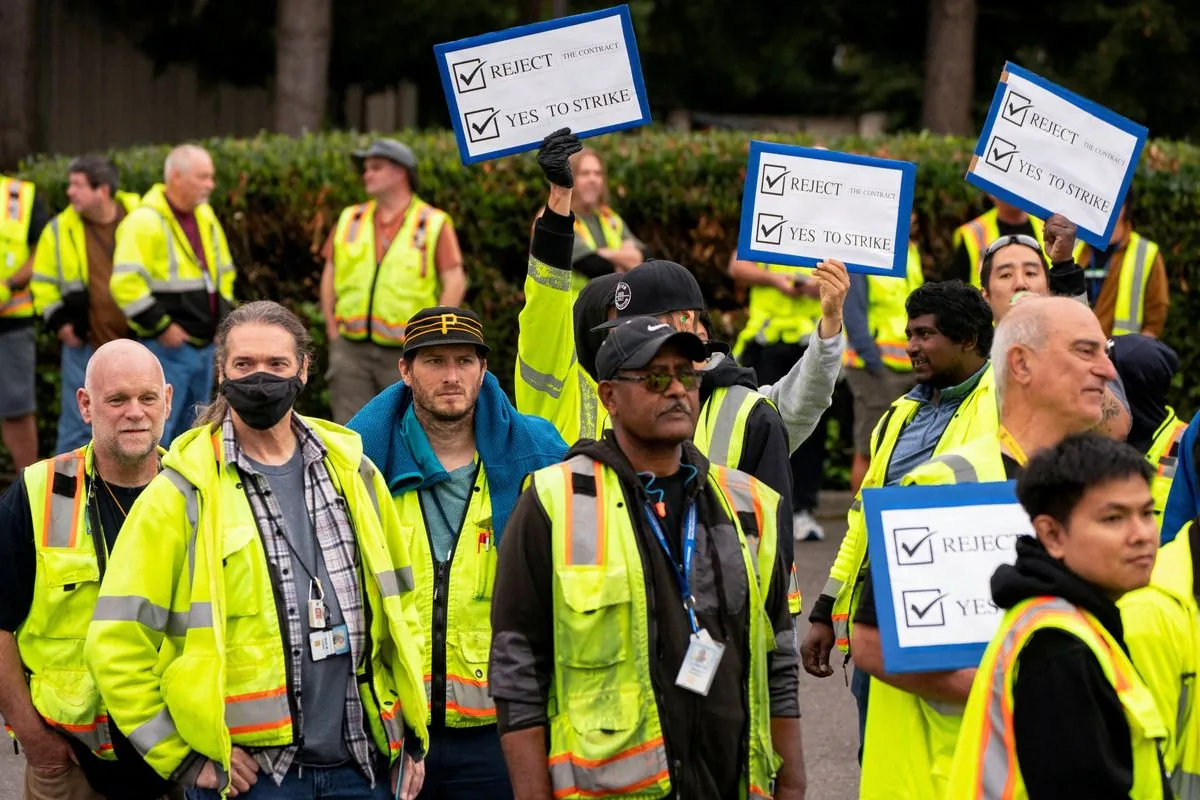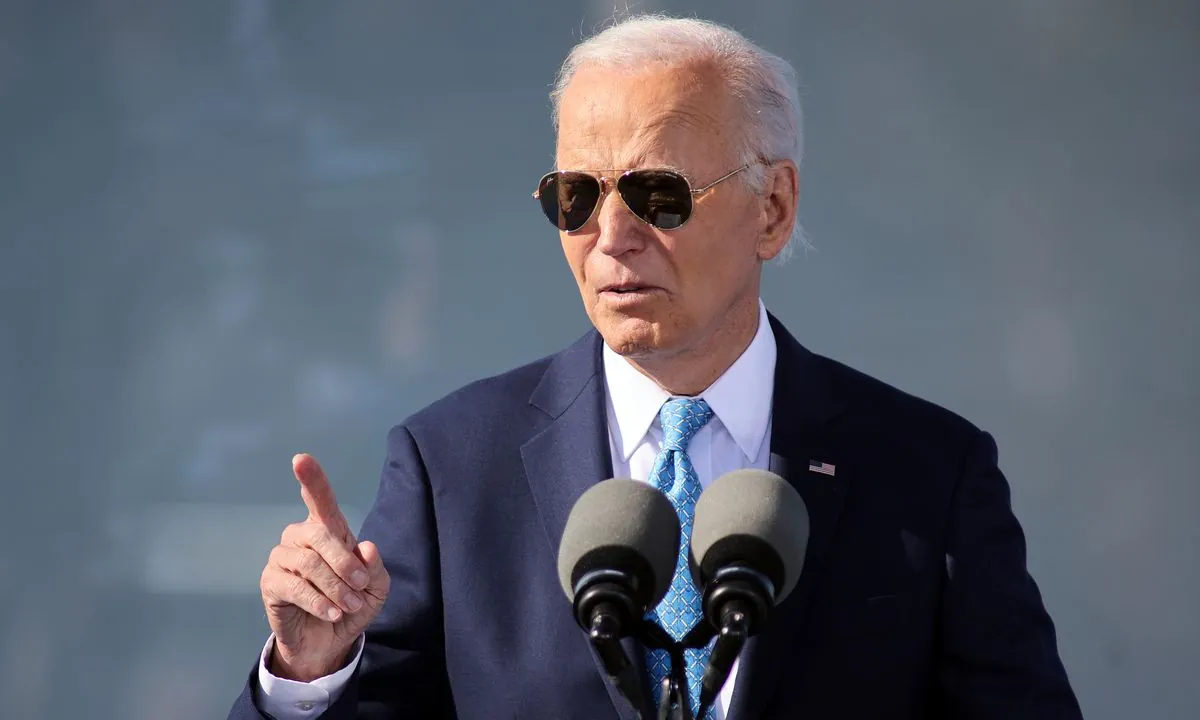Boeing Workers Vote to Strike, Rejecting 25% Wage Hike Offer
33,000 Boeing workers vote to strike, rejecting a 25% wage increase. The decision adds to the company's challenges, including delivery delays and substantial debt, highlighting long-standing labor issues.

In a significant development for the aerospace industry, approximately 33,000 Boeing workers have voted to strike, rejecting a proposed 25% wage increase. This decision, made on September 13, 2024, adds to the mounting challenges faced by the $100 billion jet manufacturer.
The strike vote, which saw 96% of workers supporting the action, primarily affects employees in the Seattle and Portland areas. This labor dispute is the latest in a series of setbacks for Boeing, a company with a complex history of worker relations dating back to its founding in 1916.

The current situation reflects a long-standing issue of wage stagnation at Boeing. Despite the company's growth and success over the years, worker compensation has remained relatively flat. Adjusting for inflation, the midpoint of the hourly wage range for top-tier workers today is roughly equivalent to what their counterparts earned in 1976.
Boeing's labor practices have evolved significantly since its early days of producing single-engine biplanes. The company has gradually shifted away from employer-provided retirement benefits, replacing them with 401(k) plans largely funded by employee contributions. This change mirrors a broader trend in U.S. corporate practices, but has left many workers feeling shortchanged.
The disparity between executive compensation and worker wages has become increasingly apparent. In the 1970s, Boeing's CEO made headlines with a $1 million annual salary. Fast forward to 2023, and former Chief Executive David Calhoun's package amounted to over $30 million – a six-fold increase when adjusted for inflation.
Boeing's financial decisions have also come under scrutiny. Between 2003 and 2019, the company allocated $80 billion to stock buybacks and dividends, prioritizing shareholder returns over worker benefits. This strategy, while beneficial for investors, has contributed to the current labor tensions.
External factors have played a role in shaping Boeing's labor landscape. Healthcare costs in the U.S. have soared, tripling as a percentage of GDP between 1960 and 2010. This increase has significantly impacted the value and cost of employee insurance. Additionally, the development of manufacturing capabilities in states like South Carolina and countries like China has encouraged companies, including Boeing, to relocate some operations.
The strike comes at a particularly challenging time for Boeing. The company is grappling with persistent delivery delays, production caps imposed by regulators, market share losses, and nearly $60 billion in debt. These issues stem from various factors, including the 737 MAX crisis in 2019, which led to a worldwide grounding of the aircraft for nearly two years.
As Boeing works to overcome these challenges, it's also focusing on future innovations. The company is developing the 777X, set to be the world's largest twin-engine jet, and investing in sustainable aviation fuels and electric propulsion technologies. However, the current labor dispute threatens to disrupt these efforts and further complicate Boeing's recovery.
The strike vote highlights the delicate balance Boeing must strike between maintaining profitability, investing in innovation, and fairly compensating its workforce. As the company navigates this complex situation, the outcome will likely have far-reaching implications for the aerospace industry and American manufacturing as a whole.
"Our members are seeking a 40% wage increase, reflecting the true value of their skills and dedication to Boeing's success."
This labor dispute serves as a reminder of the ongoing challenges in balancing corporate interests with worker rights, a issue that continues to shape the American industrial landscape.


































